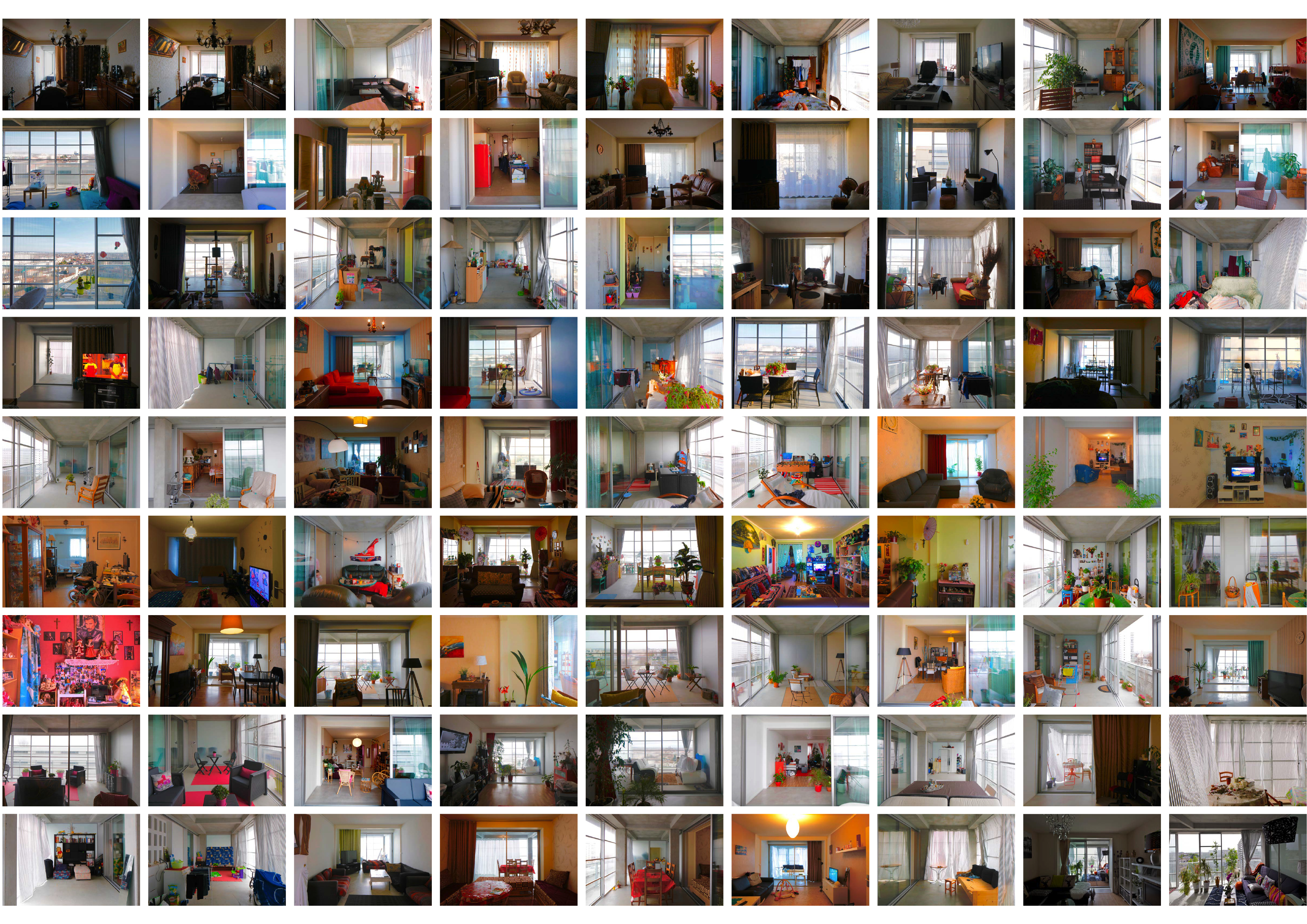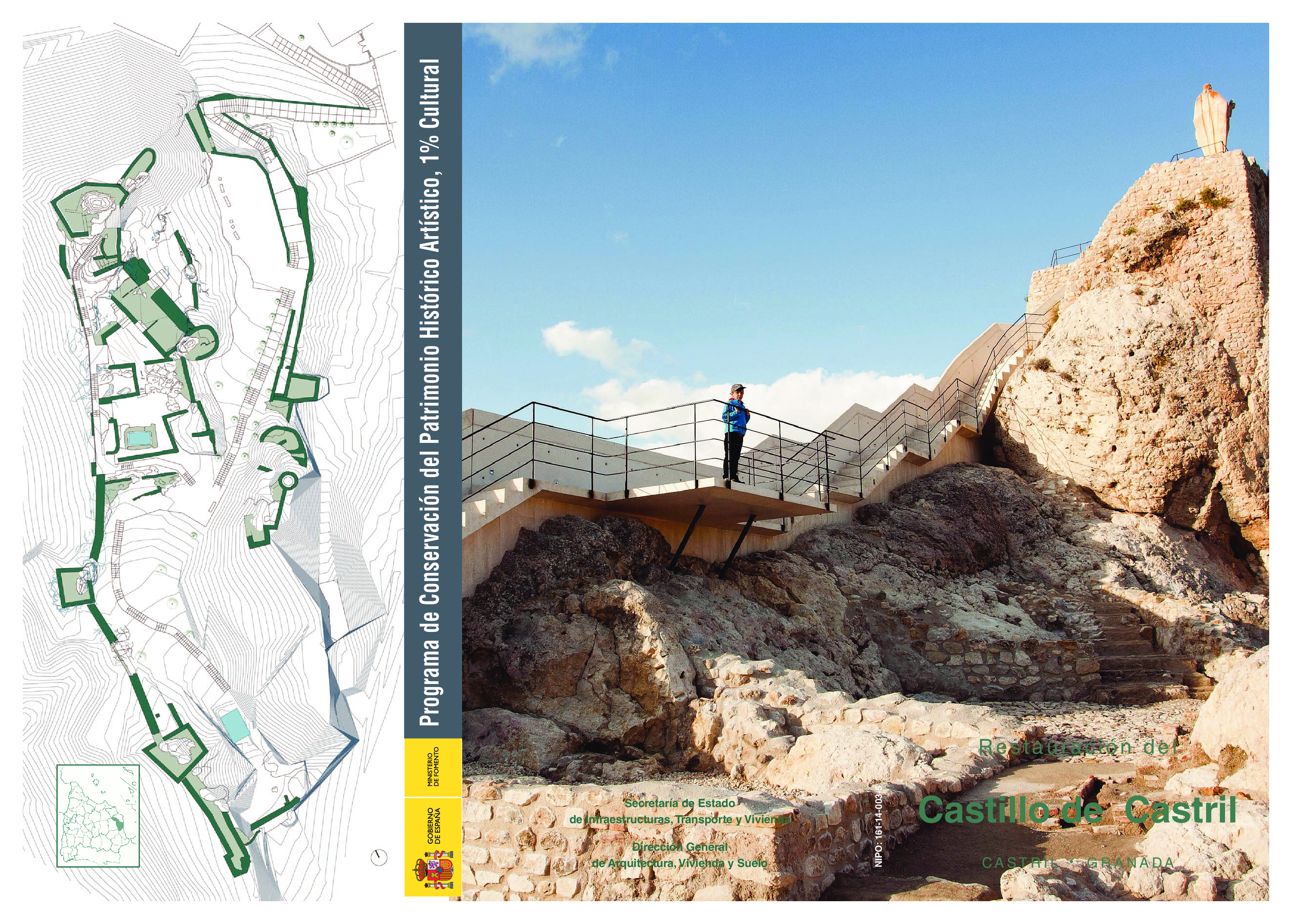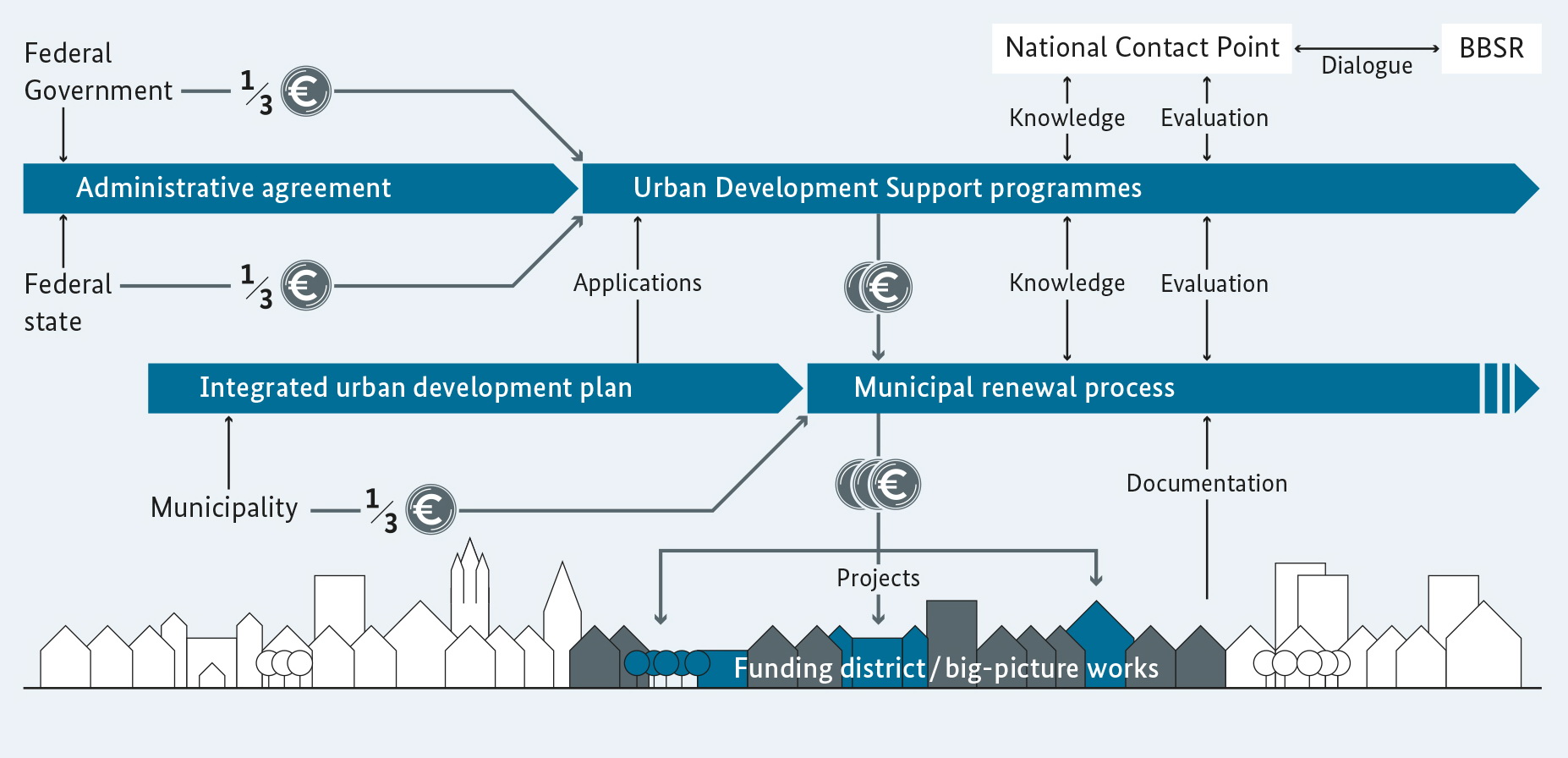Funding and investment
(25) TRANSFORMATION OF CITÉ DU GRAND PARC BORDEAUX (FRANCE) shows how three social housing blocks, built in the 1960s and a prominent part of the Bordeaux skyline, were saved from demolition by the new social landlord. A major renovation was undertaken aligned with the needs of the community, which were integral to the design process. The transformation of the fully occupied buildings started from the interior to give them new qualities: more space, more light, better views and an upgrade of facilities as well as a significant improvement on energy efficiency without increasing rents. This recipient of the 2019 EU Mies Award (1) (and the 2021 Pritzker Prize for Lacaton Vassal) is testament to the high quality and success of the project and participation model, which can be replicated throughout Europe.

Transformation of 530 dwellings, Grand Parc Bordeaux, France, 2017.
(case study 25) Architects Anne Lacaton, Jean-Philippe Vassal, Frédéric
Druot, Christophe Hutin.
Winner of the 2019 EU Mies Award. © Philippe Ruault
(26) CULTURAL 1,5 % (SPAIN) is an effective measure introduced as part of the Spanish Historical Heritage Act of 1985, which established the requirement of allocating at least 1,5 % of the budget for public contracts for the conservation or renovation of buildings declared to be of cultural interest. Spain’s central government has since co-financed, together with the owners, more than 1500 procedures in 600 municipalities to ensure the proper funding of the built heritage.
Restauración del
Castillo de Castril
(Cultural 1,5%), Spain,
2013.
© Ministerio de Transportes, Movilidad y Agenda Urbana

(27) THE SUSTAINABLE NEIGHBOURHOOD CONTRACT – CONTRAT DE QUARTIER DURABLE (BELGIUM) is a Belgian plan of action implemented by the regional government and local authorities, including the residents of a Brussels neighbourhood. Every 4 years municipalities can apply for regional subsidies for a particular area. After a year of researching the location, a basic roadmap (‘dossier de base’) sets an agenda for different types of public investment (renovation, new public facilities, social activities), which the local authority must implement within the specified period of 4 years.
(28) FEDERAL URBAN DEVELOPMENT PROGRAMME (STÄDTEBAUFÖRDERUNG) (GERMANY) is one of Germany’s instrumental programmes to advance sustainable urban development, both in cities and smaller towns. The programme’s central goal is to strengthen urban planning in inner cities and town centres, while also addressing heritage and monument protection as well as public and open spaces. The German government, the federal states and the municipalities usually split the costs three ways. The prerequisite for claiming funding is a local, integrated urban development concept, which takes key aspects of Baukultur into account. The programme aims to enable participation in public and social life for all and, in turn, to strengthen social cohesion. In addition, it makes a significant contribution to the implementation of the Leipzig Charter and the Davos Declaration and therefore contributes to the sustainable redevelopment of the urban core and a reduction in land consumption – promoting urban development that is geared towards existing building stock and high-quality Baukultur.

An example from Germany of an integrated urban development support programme
in which different levels (national, state and local) join forces
(Städtebauförderung).
© complan Kommunalberatung GmBH & Erfurth
Kluger Infografik GbR
Findings and observations
- The importance of developing funding incentives to achieve high-quality results is demonstrated, for instance, by the Cultural 1,5 % programme, which ensures that cultural heritage is considered in public contracts for new construction.
- The Transformation of Cité du Grand Parc Bordeaux in France is a landmark project which opens up new avenues for future best practice models for the long term. The scheme was based on a holistic vision, taking on the renovation of existing social housing stock and delivering a just and fair transition to energy efficiency and affordable quality housing for everyone. The project recognised the importance of empowering communities and signals the change required to enable bottom-up, citizen-driven policymaking rather than one which is solely government-led. This kind of policymaking is urgently needed to bridge the gap between policymakers and citizens in order to prevent subprime results.
- The importance of incorporating quality criteria into funding programmes, measures and incentives to ensure high-quality outcomes that stem from a holistic vision for the physical, cultural, environmental and social identity of a place.
- Further evidence of the need for quality-driven investments can be found in research undertaken by Urban Maestro, and the case studies presented within the research. They reveal different levels and ways of funding and the success this kind of approach can bring. Examples include land value capture models from Copenhagen and Freiburg, innovative financing models for public-private-partnerships in real estate development, as well as civic initiatives based on a Citymaker Fund (Netherlands) investment model to support and to sustain start-ups and social enterprises of great value to communities, which gives rise to a network of place makers across Europe.
(1) Further information: https://eumiesaward.com/work/3889